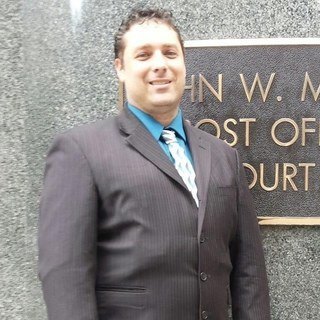Filter by
Browse lawyers
Cities in Massachusetts - Find a Lawyer Near Me
-
Boston
-
Cambridge
-
Worcester
-
Springfield
-
Waltham
-
Quincy
-
Newton
-
Framingham
-
Woburn
-
Salem
-
Wellesley
-
Andover
-
Braintree
-
Lowell
-
Fall River
-
New Bedford
-
Brockton
-
Lexington
-
Brookline
-
Needham
-
Burlington
-
Hingham
-
Beverly
-
Somerville
-
Natick
-
Northampton
-
Canton
-
North Andover
-
Concord
-
Pittsfield
-
Plymouth
-
Westborough
-
Milton
-
Marlborough
-
Wakefield
-
Dedham
-
Lynn
-
Arlington
-
Medford
-
Norwood
-
Wellesley Hills
-
Chelmsford
-
Charlestown
-
Haverhill
-
DANVERS
-
Lawrence
-
Peabody
-
Taunton
-
Watertown
-
Hyannis
-
Westwood
-
Winchester
-
Holyoke
-
Malden
-
Belmont
-
Chestnut Hill
-
Jamaica Plain
-
Lynnfield
-
Newburyport
-
NEWTON CENTER
-
Sudbury
-
West Roxbury
-
Marblehead
-
Acton
-
Methuen
-
Norwell
-
Southborough
-
Bedford
-
Melrose
-
Franklin
-
Leominster
-
Stoneham
-
Gloucester
-
Attleboro
-
Brighton
-
Mansfield
-
Wayland
-
Wilmington
-
Sharon
-
Westford
-
Reading
-
Walpole
-
Longmeadow
-
Amherst
-
Barnstable
-
Falmouth
-
South Easton
-
Stoughton
Browse lawyers
Practice Areas in Massachusetts
-
Business
-
Real Estate
-
Litigation
-
Personal Injury
-
Family Law
-
Estate Planning
-
Criminal Defense
-
Intellectual Property
-
Probate
-
Government
-
Insurance
-
Consumer Protection
-
Appeals
-
Tax
-
Civil Rights
-
Immigration
-
Elder Law
-
Medical Malpractice
-
Workers Compensation
-
Mediation
-
Trusts
-
Child Custody
-
Car Accident
-
Lawsuit / Dispute
-
Bankruptcy
-
Child Support
-
Social Security & Disability
-
Discrimination
-
Class Action
-
Domestic Violence
-
Wrongful Death
-
Debt Collection
-
Financial Markets And Services
-
Juvenile Law
-
Entertainment
-
Divorce
-
Employment / Labor
-
Foreclosure
-
Sexual Harassment
-
Wrongful Termination
-
Adoption
-
Sex Crime
-
Copyright Application
-
DUI / DWI
-
Federal Crime
-
Debt Settlement
-
Landlord & Tenant
-
Construction
-
Drug Crime
-
Cannabis Law
-
Credit Repair
-
Education Law
-
Life Insurance
-
Admiralty / Maritime
-
Environmental Law
-
Corporate
What an Employment / Labor Lawyer Can Do for You
An employment and labor lawyer specializes in helping individuals and businesses navigate the complex legal landscape surrounding employment relationships. These lawyers assist with matters such as wrongful termination, workplace discrimination, harassment, wage disputes, employee benefits, and contract negotiations. They also provide guidance on compliance with labor laws, including the Fair Labor Standards Act (FLSA), Occupational Safety and Health Act (OSHA), and other federal and state regulations.
Whether you're an employee facing workplace issues or an employer needing legal advice on compliance and policies, an employment/labor lawyer can help protect your rights and ensure legal compliance.
When Should I Hire an Employment / Labor Lawyer?
You should consider hiring an employment or labor lawyer in the following situations:
-
For Employees:
- Wrongful termination: If you believe you were fired illegally due to discrimination, retaliation, or violation of your employment contract, a lawyer can help you file a claim and seek compensation.
- Discrimination: If you’ve experienced workplace discrimination based on race, gender, age, disability, religion, or other protected characteristics, a lawyer can assist you in filing a claim with the Equal Employment Opportunity Commission (EEOC) or a similar state agency.
- Sexual harassment: If you’ve been subjected to unwanted advances, sexual harassment, or a hostile work environment, a lawyer can help you file a claim or pursue legal action.
- Wage and hour disputes: If you’re being underpaid or denied overtime in violation of wage and hour laws, a lawyer can help recover unpaid wages and ensure compliance with labor laws.
- Retaliation: If your employer retaliated against you for reporting illegal practices, filing a discrimination claim, or whistleblowing, a lawyer can help you pursue a legal claim.
- Contract disputes: If your employment contract has been breached, or if you're negotiating the terms of a new contract, a lawyer can review the terms, represent you in negotiations, and ensure your rights are protected.
-
For Employers:
- Compliance with labor laws: If you need to ensure your business complies with labor regulations like FLSA, OSHA, Family and Medical Leave Act (FMLA), or state-specific labor laws, a lawyer can provide guidance and draft policies to mitigate legal risks.
- Employee contracts and handbooks: An employment lawyer can help draft employment contracts, non-compete agreements, employee handbooks, and policies to protect your business and prevent disputes.
- Defending against claims: If an employee files a claim of discrimination, harassment, or wrongful termination, a lawyer can represent your business in negotiations, mediation, or litigation.
- Union negotiations and disputes: Labor lawyers can assist businesses in collective bargaining negotiations, defend against unfair labor practice claims, and ensure compliance with union-related regulations.
- Workplace investigations: If an employee accuses your business of violating labor laws or workplace policies, a lawyer can guide you through the investigation and advise on appropriate action to avoid legal consequences.
Hiring a lawyer early in the process can help prevent costly legal disputes and ensure that all employment and labor laws are followed.
What Does an Employment / Labor Lawyer Do?
An employment and labor lawyer provides a wide range of services to both employees and employers. Their responsibilities often include:
-
For Employees:
- Filing claims with regulatory agencies: A lawyer can help you file complaints with government agencies like the EEOC, the Department of Labor (DOL), or state labor boards, ensuring that your claim is properly documented and submitted on time.
- Negotiating severance agreements: If you’ve been laid off or terminated, a lawyer can help negotiate a fair severance package and ensure that your legal rights are respected.
- Pursuing litigation: If you’ve been wrongfully terminated, discriminated against, or harassed, a lawyer can represent you in court, presenting evidence, questioning witnesses, and arguing your case before a judge or jury.
- Reviewing employment contracts: A lawyer can review your employment contract, including non-compete agreements or non-disclosure agreements (NDAs), to ensure that the terms are fair and legally binding.
-
For Employers:
- Drafting and reviewing employment policies: Lawyers assist with drafting employee handbooks, workplace policies, and contracts to ensure compliance with labor laws and prevent future disputes.
- Defending against employee claims: Employment lawyers defend businesses against claims of wrongful termination, discrimination, wage violations, or harassment, representing them in court or at arbitration hearings.
- Advising on compliance: Lawyers provide ongoing guidance to businesses to ensure compliance with employment laws, including minimum wage, overtime, health and safety standards, and anti-discrimination laws.
- Handling collective bargaining and union disputes: Labor lawyers represent businesses during union negotiations, collective bargaining, and in defending against claims of unfair labor practices.
How Are Employment / Labor Lawyers Paid?
Employment and labor lawyers typically charge for their services in various ways, depending on the complexity of the case and the type of legal work involved. Common payment structures include:
- Hourly rate: Many employment lawyers charge by the hour, with rates typically ranging from $200 to $600 or more, depending on the lawyer’s experience and location. This is common for cases involving contract review, compliance advice, or defending against claims.
- Flat fee: For straightforward tasks, such as drafting an employment contract or employee handbook, some lawyers offer a flat fee. Flat fees generally range from $1,000 to $5,000, depending on the scope of work.
- Contingency fee: In cases where an employee is suing for damages (e.g., wrongful termination, wage disputes, or discrimination), a lawyer may work on a contingency fee basis. This means they are paid a percentage (typically 25% to 40%) of any settlement or court award, only if they win the case.
- Retainer: For ongoing legal representation, businesses may pay a retainer fee. This is an upfront payment that the lawyer bills against as they provide legal services, often used for large employers needing regular legal advice on labor law compliance.
It’s essential to discuss payment arrangements with your lawyer upfront, so you fully understand the potential costs involved.
How Much Does an Employment / Labor Lawyer Cost?
The cost of hiring an employment or labor lawyer depends on the complexity of the case, the lawyer’s experience, and the time involved. General cost estimates include:
- Hourly rates: Employment lawyers typically charge between $200 and $600 per hour, with more experienced lawyers charging higher rates. For example, a case requiring 10 hours of legal work at $300 per hour would cost $3,000.
- Flat fees: For tasks like reviewing or drafting a contract, flat fees generally range from $1,000 to $5,000, depending on the complexity of the work and the lawyer’s experience.
- Contingency fees: For cases involving employee claims for damages, contingency fees usually range from 25% to 40% of the settlement or award. For example, if you win a $100,000 settlement and the lawyer charges a 30% contingency fee, they would receive $30,000.
- Retainers: For ongoing legal services, a retainer typically ranges from $2,000 to $10,000, depending on the scope of the work and the size of the business.
Be sure to get a clear estimate of costs during your consultation to avoid surprises later.
Top Questions to Ask an Employment / Labor Lawyer
Before hiring an employment or labor lawyer, it’s important to ask key questions to ensure they have the experience and expertise to handle your case. Key questions to ask include:
-
What experience do you have with employment/labor law?
Ensure the lawyer has experience in handling cases like yours, whether it's discrimination, wage disputes, or employment contracts. -
How do you charge for your services?
Clarify whether the lawyer charges a contingency fee, hourly rate, or flat fee, and ask for a detailed estimate of the costs involved. -
What are the possible outcomes of my case?
Ask the lawyer for an honest assessment of the likely outcomes and what steps they will take to protect your interests. -
How long will the process take?
Employment and labor cases can take time to resolve, so ask the lawyer how long they expect the process to take, from filing a claim to settling or going to trial. -
Will my case go to court?
Ask whether the lawyer thinks your case will settle out of court or whether litigation is likely. -
What are my legal options?
Ask the lawyer to explain your legal options, such as mediation, arbitration, or litigation, and which option they believe is best for your case. -
What laws apply to my case?
Employment and labor laws vary depending on the jurisdiction, so ask the lawyer to explain which federal, state, or local laws are relevant to your situation.
How to Check the Credibility of an Employment / Labor Lawyer
To ensure you are hiring a reputable employment or labor lawyer, take the following steps to verify their credentials and experience:
- Verify their bar status: Check with your state bar association to confirm that the lawyer is licensed to practice law and has no history of disciplinary actions.
- Look for relevant experience: Review the lawyer’s website or professional profile to ensure they specialize in employment or labor law and have successfully handled cases similar to yours.
- Read client reviews and testimonials: Look for reviews on platforms like Avvo, Martindale-Hubbell, or Google to see what past clients say about the lawyer’s performance and professionalism.
- Ask for references: A reputable lawyer should be able to provide references from past clients or businesses they’ve represented in employment or labor matters.
- Check for certifications or memberships: Look for certifications or memberships in organizations like the National Employment Lawyers Association (NELA) or the American Bar Association’s Labor and Employment Law Section.
What Should I Prepare for My First Consultation?
To get the most out of your first consultation with an employment or labor lawyer, it’s important to come prepared with relevant documents and information. Here’s what you should bring:
-
For Employees:
- Details of your employment: Bring a copy of your employment contract, offer letter, employee handbook, and any performance evaluations.
- Evidence of the dispute: Provide copies of any written correspondence, emails, or other documentation related to your claim, such as termination letters, pay stubs (for wage disputes), or discrimination complaints.
- Previous complaints or actions: If you’ve filed complaints with HR, regulatory agencies, or unions, bring any documentation related to those actions.
-
For Employers:
- Employment policies and contracts: Bring copies of your company’s employment contracts, employee handbook, workplace policies, and any relevant documentation regarding the employee(s) in question.
- Details of the issue: Provide a clear summary of the issue, such as discrimination claims, wage disputes, or compliance concerns, along with any related correspondence or records.
- Regulatory communications: If your company has been contacted by labor boards or regulatory agencies, bring copies of those communications.
By preparing thoroughly for your consultation, you can help the lawyer assess your situation more effectively and provide tailored legal advice for your employment or labor case.


































